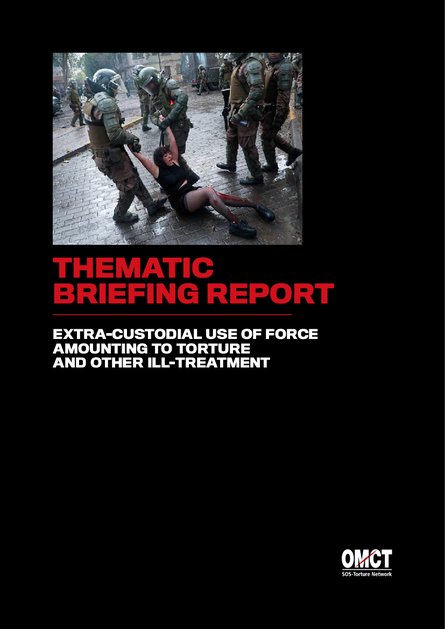
The enforcement of Covid-19 related restrictions has dangerously increased police violence worldwide, according to a new briefing report published today by the World Organisation Against Torture (OMCT). The report highlights the need to apply the international legal anti-torture framework to counter this alarming trend, which is not limited to authoritarian countries.
While torture and other forms of ill-treatment often take place in detention, they can increasingly be seen on the streets of cities from Moscow to Minneapolis, at checkpoints, to disperse protests, during curfew enforcements or at countries’ borders. In each of these cases, law enforcement officials use brutal methods and dangerous weapons. Examples include the 2019 use of rubber bullets in Chile that led to over 200 people losing their sight, the killing of George Floyd in the United States, the brutal repression of public demonstrations in Algeria, Belarus, Colombia, Hong Kong, Iraq, Myanmar, Nigeria or Russia.
In the current Covid-19 context, the enforcement of health-related measures has further exacerbated the violence by law-enforcement officials to alarming levels. Situations of land disputes and forced evictions3 as well as irregular migration and border control contexts are among other extra-custodial settings where abuse of the use of force frequently takes place. Widespread discrimination against people of African descent and other racial and ethnic minorities and the marginalisation of underprivileged people are among the root causes of law enforcement abuses.
This Briefing Report is structured around four main topics discussed by the participants: I. The scope and limits of the principles of the use of force; II. The policing of assemblies and risks of less-lethal weapons; III. Applying the anti-torture framework on the use of force; and IV. Key developments in the work of the Committee in addressing extra-custodial use of force. The report concludes with a set of key recommendations addressing current gaps and opportunities.
